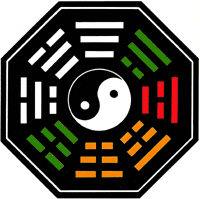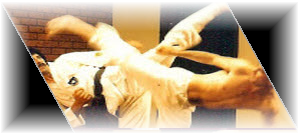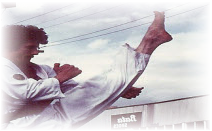


about_poomse
Poomse / Forms
Forms, or Poomses in Korean language are a series of defending and attacking movements performed against imaginary opponents in a set pattern. Through the practice of forms, students come to learn the applications of various techniques of Taekwondo. Forms serve a multi-dimensional role, aiding in development and refinement of coordination, balance, timing, breath control and rhythm, all of which are essential skills to the Taekwondo student.
W.T.F. (World Taekwondo Federation) uses Poomse for patterns. Poomse originate from the book 'I Ching', a Chinese oracle. The I Ching has 64 hexagrams, a combination of two sets of three lines, closed or broken. The sets of three lines are called trigrams. The closed lines represent Yang, the open lines Yin. In the chinese language, the unity of Yin and Yang is called 'taich'i'. In the Korean language, the unity is called T'ae-geuk. This explains the term Poomse Taegeuk. The eight trigrams together are called Pal-gwe as in Poomse Palgwe.
Forms, or Poomses in Korean language are a series of defending and attacking movements performed against imaginary opponents in a set pattern. Through the practice of forms, students come to learn the applications of various techniques of Taekwondo. Forms serve a multi-dimensional role, aiding in development and refinement of coordination, balance, timing, breath control and rhythm, all of which are essential skills to the Taekwondo student.
W.T.F. (World Taekwondo Federation) uses Poomse for patterns. Poomse originate from the book 'I Ching', a Chinese oracle. The I Ching has 64 hexagrams, a combination of two sets of three lines, closed or broken. The sets of three lines are called trigrams. The closed lines represent Yang, the open lines Yin. In the chinese language, the unity of Yin and Yang is called 'taich'i'. In the Korean language, the unity is called T'ae-geuk. This explains the term Poomse Taegeuk. The eight trigrams together are called Pal-gwe as in Poomse Palgwe.


Taegeuk Chil Jang (7)
Spinning Kick

Webmaster: Tony Susac - taekwondo@susac.net - © Project Susac 2025 - Susac's Taekwondo - All Rights Reserved







Susac's Taekwondo & Self Defence Academy



